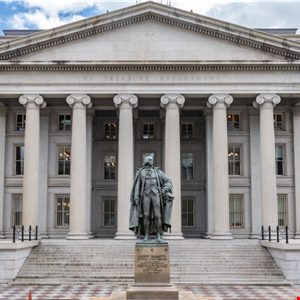The US Department of the Treasury’s Office of Foreign Assets Control (OFAC) has sanctioned a Russian national for her involvement in laundering and transferring funds using virtual currency on behalf of Russian elites.
Ekaterina Zhdanova reportedly played a pivotal role in assisting Russian elites and illicit actors in evading US and international sanctions, particularly by exploiting virtual currency.
After Russia invaded Ukraine in 2022, OFAC imposed extensive economic sanctions on the Russian financial system. Zhdanova, in March 2022, allegedly aided a Russian client in obscuring the source of over $2.3m, funneling it into Western Europe through fraudulent investment accounts and real estate acquisitions.
Zhdanova employed virtual currency to facilitate cross-border transactions and leverage entities lacking Anti-Money Laundering/Combating the Financing of Terrorism (AML/CFT) controls, like the OFAC-designated Russian cryptocurrency exchange, Garantex Europe OU.
She allegedly utilized multiple methods, including cash, connections to international money laundering associates and traditional businesses such as a luxury watch company with a global presence.
Zhdanova also conducted virtual currency exchange transfers on behalf of oligarchs who have relocated internationally. One instance involved moving over $100m in wealth for a Russian oligarch to the United Arab Emirates.
She also facilitated United Arab Emirates tax residency services for Russian clients, potentially obscuring their identities allowing for the creation of a fund origin managed globally with minimal international oversight.
Furthermore, Zhdanova provided her services to individuals linked to the Russian Ryuk ransomware group, reportedly laundering over $2.3m in suspected victim payments for a Ryuk ransomware affiliate in 2021. The Ryuk group has posed a significant cybercrime threat, mainly targeting hospitals and healthcare providers in the United States.
Read more on Ryuk: More DDoS, More Leaks: Where Ransomware is Headed in 2023
“Through key facilitators like Zhdanova, Russian elites, ransomware groups and other illicit actors sought to evade US and international sanctions, particularly through the abuse of virtual currency,” commented under secretary of the treasury for terrorism and financial intelligence, Brian E. Nelson.
“We remain focused on safeguarding the US and international financial system against those who seek to exploit this technology, among other illicit finance risks in the virtual assets ecosystem.”
